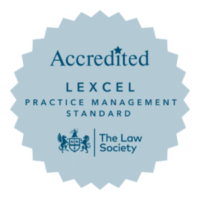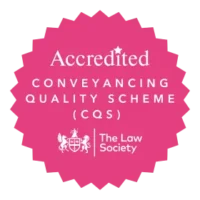Autumn Budget 2024: Inheritance Tax (IHT), Agriculture and Business Tax and other tax considerations
31st Oct 2024
The Budget has announced a raft of tax changes designed to raise significant sums for the Treasury – Partner Laura Ablett highlights some of the major points and areas to watch….
Inheritance Tax (“IHT”)
What is IHT?
IHT is paid as a consequence of the value of assets owned by a person on death (“an estate”). An estate includes things like property (a home or other property), money, and personal possessions. Significant gifts made during the deceased’s lifetime can also affect the taxable value.
Does everyone pay IHT?
No, not necessarily. IHT doesn’t apply if the value of an estate is under the threshold of £325,000 (“the Nil Rate Band Allowance” or “NRB”). It also doesn’t apply if anything above the £325,000 threshold is left to a spouse, civil partner, charity, or recognised community amateur sports club. This is known as the spouse/civil partner exemption.
If you give, on death, your home to your children, or grandchildren, or other qualifying descendants, when you die, the allowance can increase to £500,000 with the use of the Residence Nil Rate Band of £175,000 (“the RNRB”). The RNRB does, however, reduce if chargeable value is more than £2million.
If you were married/civil partners when you died and gave your estate to your spouse/civil partner, your allowances are considered unused, so, any unused NRB and RNRB can be added to the surviving spouse/civil partner’s estate. In this way a married couple/civil partners can have as much as £1million applied to their collective assets.
The Budget confirmed these allowances are frozen until 2030 – but should asset values increase, such as property, it may be the case more and more estates become subject to either paying IHT or reporting values to HMRC to claim allowances.
What is the IHT rate?
40% currently charged on the part, or balance, of your estate after allowances and exemptions have been applied. This can reduce to 36% if more than 10% is given on death to charity though.
How is IHT paid?
Funds from an estate are used to pay inheritance tax before distribution to any beneficiaries. It can also be payable, in full or in part, by persons who have received substantial gifts from a deceased person during their lifetime. Mostly arrangements are made by your Executors.
Changes for Farms and Businesses
When an estate includes a farm and farmland, where agricultural activities are taking place, Agricultural Property Relief (“APR”) can apply at up to 100% to reduce the chargeable value of the estate for tax purposes, and is presently unlimited in terms of the value of the land. However….
The 31st October budget announced where farmland is valued above £1million then APR applies but will limited to 50%. A similar approach will be adopted for businesses with shareholdings not held on the open market.
Business Property Relief (“BPR”) can also apply at the rate of up to 100% depending upon the asset held. Similarly if the business assets exceed the value of £1million then the BPR rate may be limited to 50%.
The IHT allowance for shares held in the alternative investment market (AIM) has been increased from 0% to 20% but is still not at the full IHT rate of 40%.
The above changes will come into effect from 6th April 2026 – doubtless more detail as to how these changes will work in practice will come over the coming months.
Other Tax considerations
From 6 April 2027, unused pension funds and death benefits payable from a pension will no longer be exempt for IHT purposes but will instead be brought into a person’s estate. For those whose estates are currently around £2 million, the inclusion of pensions in the value of the estate could cause tapering of the RNRB as well as an increase in taxable assets.
Giving away assets to reduce exposure to IHT is a relatively common way to approach IHT planning, but remember, when disposing of certain assets, such as shares or property which is not your main home during your lifetime, there could be a gain made and, therefore, Capital Gains Tax (“CGT”) could apply. The rates of CGT will increase from 10% to 18% on non-property assets and from 20% to 24% on residential property assets. You also need to live for more than 7 years from the date of the gift, and cannot continue to receive benefit from the asset given away.
How can we help you?
IHT can quickly become quite a complicated issue when you start considering how best to plan for the future, BUT we can help. If you would like to meet with one of our specialists to discuss your situation and options please contact us today to make a free no obligation appointment either through our website or by calling us on 01761 414646.
Related news
Articles you may find useful
Like this article? Sign up for our regular newsletters






